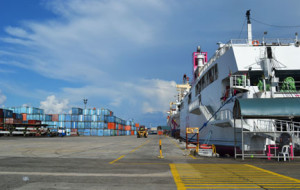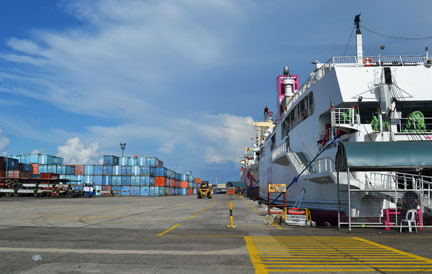 The Maritime Industry Authority (Marina) is implementing a three-pronged reform program to improve competitiveness of the Philippine domestic shipping industry by 2016. Marina has enlisted the services of the International Finance Corp. (IFC), a member of the World Bank Group, to provide technical support for the reform program.
The Maritime Industry Authority (Marina) is implementing a three-pronged reform program to improve competitiveness of the Philippine domestic shipping industry by 2016. Marina has enlisted the services of the International Finance Corp. (IFC), a member of the World Bank Group, to provide technical support for the reform program.
IFC has signed an agreement with Marina’s mother agency, the Department of Transportation and Communications, to conduct studies on reforming the transport industry, including the maritime sector.
IFC’s study on domestic shipping has identified reform opportunities in three areas: facilitating greater competition, lowering the cost base, and promoting better decision-making among the operators and regulators. IFC estimates that the reforms will lead to new investments in domestic shipping worth US$17 million per year by 2018.
Earlier this year, Marina implemented reforms for the first area through the launch of the Enhanced Special Processing Window Express Lane that cuts processing time for vessel importation, registration, safety certification and licensing from 52 days to nine days for qualified ships.
In addition, the Marina board approved last March the revised implementing rules and regulations (IRR) for the issuance of certificates of public convenience (CPC). The new IRR on CPC issuance reduces the requirements for releasing CPCs and provides clearer entry guidelines for new applications. This reform program should facilitate the approval of CPCs, leading to the entry of more market players and giving shipping companies greater flexibility in deploying ships.
IFC noted that the faster release of permits saves operators about P30 million per ship, as shipping firms lose up to P700,000 a day in direct cost and lost revenues for every ship that remains idle.
Marina is working on other measures to lower costs faced by shipping firms. These include steps to facilitate access to chartered ships, relax restrictions on drydocking and repair of vessels, and minimize restrictions on imported vessels.
IFC estimates that the current tax regime on vessel chartering generates around P608 million in annual foregone revenues to the industry brought about by the excessive import tariffs.
In addition, legal restrictions on Philippine vessels from using foreign shipyards may increase ship repair costs by up to 3.5 times, translating to extra costs as high as P17 million per vessel when extensive ship repairs are required. Marina has proposed new legislation to minimize these regulatory burdens on domestic shipping companies.
To enhance decision-making, IFC is working to improve the monitoring capabilities of Marina and the PPA with the completion of a centralized database on the domestic shipping industry. – Text and photo by Roumina Pablo





